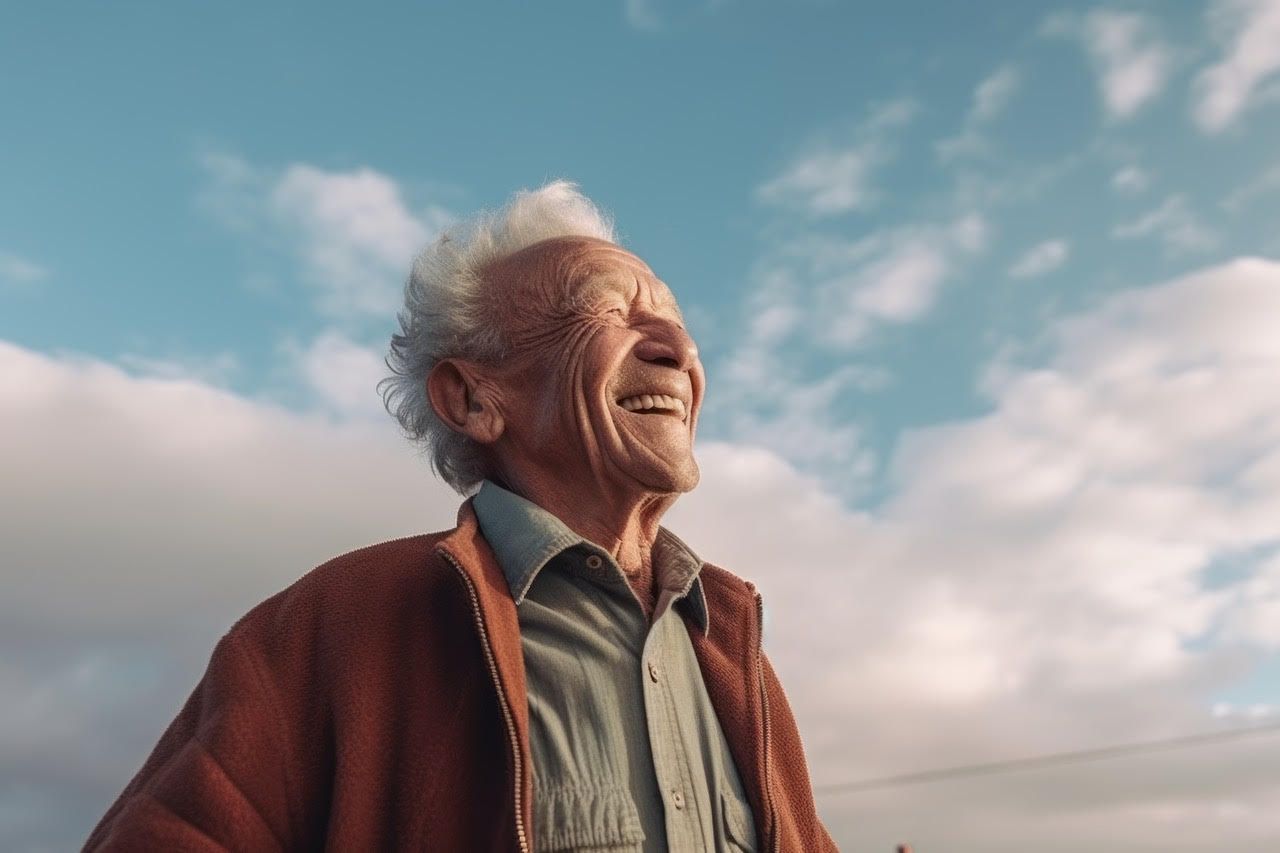Lessons from the "Blue Zones"

Nine Principles for a
Long, Healthy Life
A shepherd in Sardinia, Italy, walks more than five miles a day up and down steep mountain paths.
A cheerful loom weaver on the Greek island of Ikaria plies her trade daily with care and precision; time is meaningless to her.
An Okinawan householder takes daily barefoot walks on the beach and consumes a predominantly plant-based diet of rice and fresh vegetables.
In Costa Rica, a popular single mother of four celebrates regularly with her community and greets all strangers as friends with her infectious laugh.
A mild-mannered cardiothoracic surgeon in Loma Linda, California, with a spiritually based approach to life routinely socializes with members of his faith community.
What do these five individuals have in common? Two things: 1) they've all lived past 100 years of age, and 2) they each reside in a so-called Blue Zone. Indeed, these regions boast ten times as many centenarians per capita than the average population.
Welcome to the Blue Zones
In 2003, award-winning journalist and bestselling author Dan Buettner was commissioned by National Geographic to investigate areas of the world with exceptionally high longevity. These areas had been dubbed "Blue Zones" by scientific explorers a few years earlier.
Over the next several years, Buettner and his team identified five such regions across the globe:
- Okinawa, Japan
- Loma Linda, California (Seventh-Day Adventist community)
- Sardinia, Italy
- Nicoya, Costa Rica
- Ikaria, a Greek island
Buettner synthesized his years of research into nine lifestyle habits that he believes other populations can adopt to "reverse engineer" longevity. Here are his "Power 9":

Healthcare in
the Zone
Physicians who practice Lifestyle Medicine (LM) will immediately recognize the similarity between LM's six pillars (plant-based nutrition, physical activity, stress management, avoidance of risky substances, restorative sleep, and social connections) and the nine Blue Zone principles.
But Blue Zone researchers encourage medical professionals to take these principles a step further by connecting their practices and patients with community-wide health-promoting activities and helping shape public policy. To this end, the Blue Zones Project facilitates physician involvement in creating more healthful environments.
More than 75 Blue Zone Project communities have already improved the health of millions of Americans by drastically lowering obesity rates and smoking prevalence in urban communities. They have also decreased healthcare expenditures for chronic illnesses and reduced absenteeism.
Click here to learn more.
#1. Move Naturally
The world's longest-lived people reside in environments that continually encourage movement in everyday activities. They move naturally throughout the day, walking wherever they need to go and managing their own homes and gardens, usually without mechanical conveniences.
#2. Maintain Purpose
Maintaining a sense of purpose can add as much as seven years to your life. Okinawans call it "Ikigai," and the residents of Nicoya, Costa Rica, call it "plan de vida," but for both groups, it means "why I wake up in the morning." In Loma Linda, volunteering is a key component of maintaining purpose in life.
#3. Downshift
All of us, even Blue Zone residents, experience some stress. When left untreated, stress results in chronic inflammation and can trigger every leading age-related disease. People in the Blue Zones maintain specific routines to shed that stress. Ikarians take an afternoon siesta, Okinawans quietly memorialize their ancestors each day, Adventists pray, and Sardinians enjoy a happy hour with friends.
#4. Apply the 80% Rule
Before each meal, the Okinawans recite an ancient Confucian mantra, "Hara hachi bu" ("eat until you are 80% full"). This 20% gap can make the difference between losing or gaining weight. Blue Zone residents eat their smallest meal in the late afternoon or early evening and then stop eating for the rest of the day.
#5. Eat Your Veggies
The cornerstone of most centenarian diets is beans – fava beans, black beans, soybeans, and lentils. Blue Zone residents also consume plenty of (usually homegrown) fresh vegetables and fruits. Pork is the predominant meat staple, but it is only eaten about five times per month in small (3-4 oz.) servings.
#6. Wine @ 5:00
Moderate alcohol consumption reduces personal risk of premature death. Except for the Seventh-Day Adventist community in Loma Linda, people in the Blue Zones drink alcohol moderately and regularly. Sardinians, for example, daily consume a regional red wine called Cannonau, which contains two to three times the level of artery-scrubbing flavonoids as other wines. And Ikarians consume at least two glasses of wine daily, primarily the locally produced 16-proof variety.
#7. Belong
Virtually all of the 263 centenarians whom Buettner's team interviewed belonged to a faith-based community. Denomination was irrelevant. Research indicates that attending faith-based services once a week prolongs life by as much as 14 years.
#8. Put Loved Ones First
Blue Zone centenarians put their families first. Aging parents and grandparents live near (or with) their families. Most have been committed to a life partner and invested in their extended families with their time and love.
#9. Connect to the Right Tribe
Maintaining social bonds is critical to longevity. The world's longest-lived people choose social circles that support healthy behaviors. For Blue Zone residents, this almost always means face-to-face (rather than Facebook) interaction. Friendships and social connections provide not only intellectual stimulation but also emotional support through hardships.
Transforming Iowa Communities
In 2013, seven Iowa communities were selected as demonstration sites for implementing Blue Zone principles via the Blue Zones Project. The following video illustrates how local grocery stores got on board:
Sources:
Featured Image: Adobe, License Granted
PBS
CNBC
New York Post
Greek City Times
Loma Linda University
News Medical
Recent Posts











Share On: